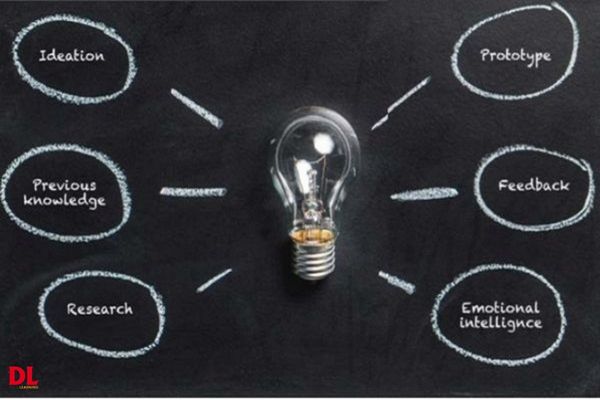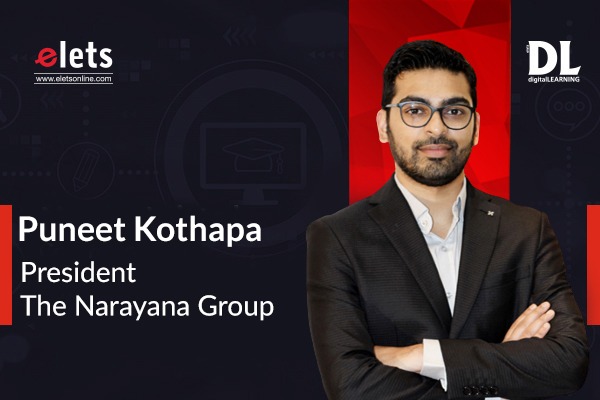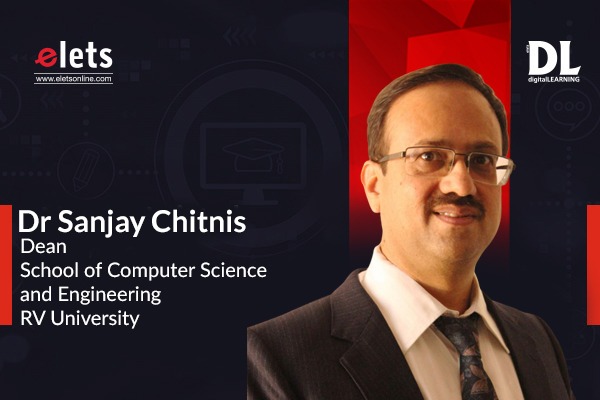
The world is catching up with the present transforming spectrum with the advent of technology and its possible application in varied sectors. The transformation indeed has thriving outcomes and the development is continuous. The sector that has metamorphosed a lot in terms of applying technology into praxis is education. The emergence of technology suddenly erupted a competitive edge between the traditional institutions and the rising edtech. To move the haystack around this topic and present a clear picture from the industry perspective, Sheeba Chauhan of Elets News Network (ENN) interacted with Dr. Sanjay Chitnis, Dean, School of Computer Science and Engineering, RV University and Puneet Kothapa, President, The Narayana Group. Edited Excerpts:
Traditional institutes catching up with edtech
Somewhat a decade earlier, no one was talking of edtech or for that matter even online teaching but now it is very much an integral part of the educational paradigm. Talking of the same, Dr. Sanjay Chitnis, Dean, School of Computer Science and Engineering, RV University mentioned that these technologies are very important, but that does not mean traditional learning is going to go away. There is a lot of learning that happens outside the classroom in formal lectures and labs. So instead of competing with the Edtech companies, the traditional universities should focus on their core competency.
While Puneet Kothapa , President, The Narayana Group agreed with the statements of Dr Chitnis and said that offline learning remains the most effective way to improve learning outcomes. Humans are social creatures wired to learn using multiple senses in a physical environment. That said, the new advancements in edtech offer tools that can complement offline learning.
 “However, we must be judicious in the selection of technologies and measure their effectiveness for learning. We have developed in-house applications for our students that offer some of these tools such as AR and on-demand learning for our students. These technologies complement our classroom teaching and not as a principal mode of teaching”, he further added.
“However, we must be judicious in the selection of technologies and measure their effectiveness for learning. We have developed in-house applications for our students that offer some of these tools such as AR and on-demand learning for our students. These technologies complement our classroom teaching and not as a principal mode of teaching”, he further added.
Decatalysing the Edtech boom
The edtech industry is poised to reach $30 billion in the next 10 years, it has placed its paws well, but many rising questions are challenging for educators. Will the technology applications in the education industry will replace the traditional educators or faculty? Though nobody is reaching to a result of this controversial discussion but it is very evident that mere machines cant be the preacher of the entire education ecosystem. Technology is an enabler and it will aid the faculty to teach students and make them industry ready that is very much a fact. However, technology replacing faculty or edtech replacing traditional schools or colleges is not the larger picture of the education sector in the near future.
The Universities are centers of learning not only for the students doing formal programs, but also a hub of knowledge and skills for the whole community that extends outside the campus. While on one side we will continue increasing the proportion of tech-based learning, on the other side we are creating strong competencies in domains that are unique to us and are difficult to replicate said Dr. Sanjay Chitnis.
 Puneet goes elucidative on the topic and said that I would not use the term de catalyst. It is important to innovate and find new tools to improve learning. We have engaged in that innovative process ourselves. Over the next decade, we will narrow down the most effective technologies for learning through a process of trial and error. We will add the ones that work to our toolkit and discard the rest. The technologies that do work will be scaled and made accessible.
Puneet goes elucidative on the topic and said that I would not use the term de catalyst. It is important to innovate and find new tools to improve learning. We have engaged in that innovative process ourselves. Over the next decade, we will narrow down the most effective technologies for learning through a process of trial and error. We will add the ones that work to our toolkit and discard the rest. The technologies that do work will be scaled and made accessible.
E-learning: digital disruption or quality enhancement
Government digital initiatives like SWAYAM (study webs of active learning for young aspiring minds) Diksha, e-pathshala, etc. will accelerate the adoption of e-learning. While there are also talks that it is disrupting the evolving landscape of education.
Talking of the same, Dr. Sanjay Chitnis added these digital initiatives by the government are excellent resources and are definitely taking the quality of education to the next level. However, we still need inspiring faculty who will influence the mindsets and attitudes of students for excellence.
“Digital disruption has the potential to increase access to education. It is not the right medium to improve the quality of education. For that, we need better teacher training programs and encourage more of our graduates to pursue a career as teachers and professors. Digital mediums can only augment classroom teaching, not replace it.” added Puneet.
Edtech or traditional institute- The affordable medium
The pandemic has captured an apparent picture of a few of the issue that was always lingering in the middle but no one was focussing on. When the schools took an online form during covid, many of the students were unable to study due to the lack of amenities. Is India really ready for “Digital India”? Expanding on the same Puneet said that again, the frame is not Edtech vs Traditional education. We do not see this as a competition. It will always be a blend of the two to produce better results. It is about broadening a teacher and student’s toolkit. The most effective and affordable technologies will be integrated into the current educational systems in the future.
While Dr. Chitnis said that in educational institutions, there is the opportunity for students to learn and earn via Teaching assistantships, consulting, etc. For online education, these opportunities are limited.
Bridging the learning gap between graduates and professionals
There has been a huge cry that college graduates are not well equipped to work in the industry. The learning gap is the major existential problem that needs to get resolved. Dr. Chitnis expressed his views and said that the gap exists because academicians have limited exposure to the market and industry. At RV University, we have started a unique program in collaboration with Mu Sigma, where students spend half of their time in the industry learning from industry experts and interning on real-life projects. Such programs will definitely help make the students employable.
Puneet agreed and said, Yes, our graduate curricula are theory-based and far behind the tools and technologies used in Industry. We need to update the curricula to balance theory with application. Well-defined industry internships can also go a long way in bridging the gap. Industry must get involved at an earlier stage of the education process by offering projects and technical internships if we are to improve the quality of the workforce.





















